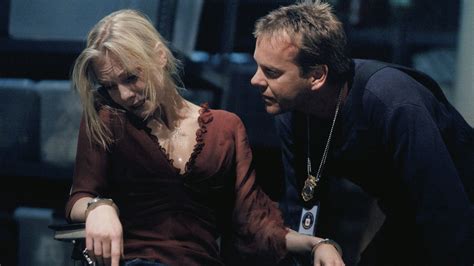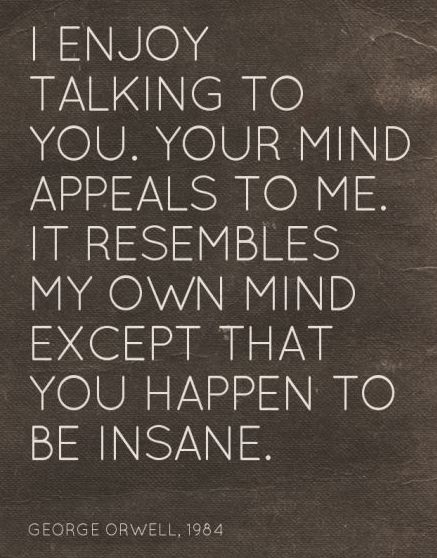|
home | what's new | other sites | contact | about |
|||
|
Word Gems exploring self-realization, sacred personhood, and full humanity
Franchezzo
return to the main-page article on "Hell"
Experience, it is said, describes a necessary ingredient of the reincarnation process. And yet the word “experience” is not easy to define. An online etymology dictionary offers this: And also the prefix, "ex": From this we discern that “experience” is an attempt, a “try”, a test, to observe; an effort to gain evidence, proof, of something sought for. This endeavor to seek for something, to observe, to test, to secure evidence, is more readily apparent in a very closely related word, “experiment”: we notice that it’s ‘ex-perience’ not ‘intra-perience’ There’s a presumption built into the word “experience.” It’s a belief that whatever it is we’re looking for, it will be found “out there” not “in here.” This is an implication to be drawn from the little prefix “ex”, which means “out of” or “from.” It's an important distinction. The dysfunctional ego constantly perceives its own neediness, a burning awareness of “I don’t have enough” because “I am not enough.” Caught in this morass of existential deficit, it would never think of looking within. “What sense does that make?” laments the ego. “If I am to get what I need to feel good about myself, the solution has to be found ‘out there.’ I already know that I have nothing ‘in here’.” And so the ego is a true-believer in “experience” – a quest to find something, some knowledge, some enhancement, some fortification to fill up the emptiness inside which dominates its perceptions of life and the universe. Whatever it gains, however, it’s never enough. Nothing ever satisfies. If you ask the ego what it needs, it always has one answer – “more.” This is why the ego, so readily drawn to reincarnational belief, insists that it requires – how many lives? – certainly not just one more, its neediness would never settle for just one more life -- but it imagines that only a hundred thousand lives could ever fill up its bottomless pit of craving desire for “more”. And so when the ego says it needs more “experience”, from the endless iteration of lives, what it’s really saying is, “I believe that more knowledge will save me.” This quest for more knowledge is the “try” or test that’s built into the word “experience.” It’s the effort to gain evidence, proof, of something sought for – and what is sought for? – that would be more knowledge, which the ego believes will make it feel whole and complete. tinker, tailor, soldier, spy The ego believes that all of those extra lives will “fill me up” with a knowledge of what it’s like to be “tinker, tailor, soldier, or spy.” If it has the knowledge of all of these lives, genders, occupations – that giant ball of wax of experience – “then I’ll feel complete and satisfied. I’ll be evolved, spiritually mature, in all that knowledge.” This is the ego’s illusion. Editor’s note: Knowledge will always be in demand, even a million years from now – but not to mature us spiritually. It has no power to do that. Materialists often make this mistake. We hear them asserting that with more information, better education, society will be changed for the better. But this, without something else, doesn’t seem to work out. In fact, the most intelligent and best educated tend to be the most corrupt, the greatest oppressors, and no matter how rich and powerful they become, it’s never enough for them. The ego can’t be coaxed into greater maturity with more knowledge, per se.
“Do not become hypnotized by dogma or belief [such as reincarnation, which he insisted is error], but find God within and be free; then your eyes will be opened and you will not want to come back to this Earth again.” Dr. Peebles is one of the great teachers on the other side. See his channeled testimony here and here. Notice in the masthead quotation how he forthrightly states that finding God within will take away the sense of existential emptiness, allowing one to “be free”, to escape the desire of coming back to the Earth. Editor's note: Dr. Peebles passed on in 1922. His testimony offered via Anna Wickland is some of the wisest and most helpful I’ve encountered over the years. However, during the last hundred years, extending to the present day, several other mediums have claimed that Peebles speaks through them. I have not reviewed them all but, one of them especially, to be frank, I do not believe that the Dr. Peebles we’ve known is speaking. The current version strikes me as a silly spirit, mouthing empty platitudes, babbling, moreover, at times, spewing nonsense, teachings contrary to natural law, of the sort that the 1922 Peebles would disown. One needs to be careful of identities as mischievous spirits are not unknown to impersonate a famous teacher. But, cannot a perception of the “God-life within” also be an experience? And if this is the real ticket to maturity, doesn’t this mean that experience is the vital element after all? Not exactly. If we use the word “experience” loosely, without deference to its strict meaning, then we could slide this past the goal. But let’s recall that “experience” contains a presumption, and the ego is well aware of the bias. The prefix “ex” means “out from” or “away.” Given the ego’s sense of inner malaise, it has no reason to suspect that its amelioration will come from within. It never looks there. And so when the ego uses the word “experience,” it does so with a view toward a strict definition of “what I need is ‘out there’.” ‘apperception’ is the necessary pre-condition, the ultimate foundation, of what we call experience; ‘apperception’ is what makes experience possible Why is it that experience, and knowledge gained from it, without something else, cannot mature us?
Animals have as much experience of the world as we do, but they lack the ability to transcend their own programming; not as humans might. Apperception speaks to an inner framework, a deeper self-knowledge, which experience of the world cannot impart. Dr. Daniel Robinson of Oxford on the work of Bishop Berkeley (paraphrased, from a lecture): “Without apperception, experience avails nothing; the Self is different from the idea; content different from the knower. Apperception is paramount to the process: to be experienced at all, the successive experiential data must be combined or held together in a unity of consciousness, which implies a unity of self, and this inner integration is as much an object of experience as anything is. Therefore experience, both of the self and its objects, rests on acts of synthesis that, because they are the [pre]conditions of any experience, are not themselves experienced. Editor's note: "Apperception" is not a common word. Gottfried Wilhelm Leibniz (1646-1716) coined the term (from the German apperzeption). He did so within the context of his “monads,” which he said are building blocks of reality, a “self-sufficient indivisible simple substance.” There are four different kinds of monads, Leibniz postulated, with God as the supreme monad, followed by humans, animals, and other items of the world. All these have a degree of perception, but God (and humans) enjoy a higher grade, an “apperception,” which is self-consciousness (that is, the One who describes himself as the great “I Am”); further, he asserted, God demonstrates absolute apperception and appetition (this latter becomes a desire directed towards a specific purpose. See the youtube lectures of physicist Dr. Frederico Faggin, inventor of the first computer microchip in 1971, who sees Leibniz’s “monads” as a starting point to explain that Consciousness, not matter, forms the elemental essence of all reality. The appetition of Universal Consciousness is to know itself which, as Dr. Faggin puts forward, is the driving force of evolution in the cosmos). Kant distinguished transcendental apperception from empirical apperception. The first is the perception of an object as involving the consciousness of the pure self as subject -- "the pure, original, unchangeable consciousness that is the necessary condition of experience and the ultimate foundation of the unity of experience." apperception speaks to an enhanced structure of the mind, not just more knowledge On the "Clear Thinking" page I presented the following paragraphs which introduce the concept of "pre-condition to experience" or foundational structuring of the mind: I've presented several errors of debate in Robert Thouless's "How To Think Straight." Some of you might like to get his book and read all 34. content vs. structure It's helpful to become aware of Thouless's cataloging of the "dishonest tricks," as he calls them. We see them everywhere in society. It's virtually all we hear from many politicians, from Big Religion, from Facebook debates, from sales ads, on and on - but, especially, if we're not very careful, we find these "tricks" well at home in the privacy of our own minds, where they do the most harm, with the one who's the easiest to fool. What can be done? Thouless offers a philosophical assessment: essentially, he says, "if we had enough public awareness, better education, we could all begin to think straight." This problem, however, I believe, runs deeper than education, which is just more content. Some of the biggest violators of clear thinking are the most highly educated, and not even the captain of the Harvard debating team might be immune. We must look at the mind's disability in terms of "structure" not just "content."
It's a proverbial question: Is the glass half-full or half-empty? We are tempted to answer one way or the other - usually, half-empty. But why should this be so? It's the same glass, the same quantity of liquid. Kant's mind-imposed structures on sensory data come alive in this little thought-experiment. The "glass half-full or empty" becomes microcosm of a grand systemic issue: What about other areas of life? What else are we viewing as "half-full" or "half-empty"? Do I see my own life as "half-full" or "half-empty"? How do we view the past? - was it "half-empty" every day? What about the future? Is there fullness there? are good things assuredly coming? - or is it all just variations of emptiness? Let's be more realistic. There are very few people who live their lives seeing "half-full glasses." Fullness, abundance, wholeness, and completeness are concepts foreign to the Small Ego - because in that dark world of perpetual lack, there are only degrees of emptiness; and even when "the glass is full" we don't really see it as full, as to make us happy, but only as a new threat against losing what we have. structure vs. content All this "insanity" manifests as distorted view of the universe, wherein, ironically, God and Goodness are All-Pervasive; but, to many, living in a private hall-of-horrors, the threat of loss continually looms large and burdens one's spirit -- all glasses in life are forever perceived to be "half empty" -- as we suffer under draconian mind-imposed structures which filter and sort the in-coming sensory data. This is the essential problem of the ego. No amount of content, knowledge, or experience can fundamentally influence it – not until a deficient structure of mind, a basic neediness of “I am not enough,” is addressed. Dr. Peebles says that once we perceive the God-life within, our desires will change, a certain structure of the mind is altered. We’re no longer rabid to fill up an existential neediness. We feel more whole and complete. This goes beyond learning some new fact of the external world, some new “ex-perience.” We are changed from the inside out. Or so it seems. The soul’s influence, once dormant -- but there all the time -- begins to awaken. And then, as the apostle Paul used the phrase, we become “a new creation.” ‘remind her of the things she used to love’ In Part I we spoke of this principle, employed by the Guides, as an attempt to awaken the soul. It sometimes seems to work, but most often does not.
A mere remembrance of some good thing of former times, while momentarily, possibly, pleasant, cannot awaken the soul. The image of something warm and loving, of and by itself, cannot rouse the soul to action. But if the dormant soul finds within itself its own desire to come alive, that is, if it is its time to do so, then the image of past love can serve as catalyst, a kind of portal, to awakening. But only if the soul is predisposed to accept it, wants it, and is desirous of seeking for it. The images of past love, at the right time, can “germinate” the seed of the soul, as sunshine and moisture vivify the seemingly dead acorn.
W. Aber’s “Beyond The Veil”: channeled testimony via direct-materialization, from the latter 1800s: "Good-evening, friends. I say 'friends' because all are friends who are working to better the human family… I have been in spirit life so many years that I have no ties on the earth plane. I am called Zelda… This is my first visit to earth for many years. As my work lies far beyond yours, I have no desire to visit this plane, and would not be here tonight if the good Doctor (Reed) had not requested me to give you something in regard to the work I am engaged in. He tells me that a simple recital of my work may be very instructive to you… We use no textbooks in the schools of spirit life but through the power of our minds we are able to place before our students pictures of any subject we wish in explain. A spirit who passes into the spirit spheres before s/he has reached maturity is best taught by instructive games. We have a system of music that far surpasses the music of your earth, and we only use such as will awaken the highest aspirations of the soul. We teach our pupils anything in regard to harmonious sounds…” Editor’s note: There is much important information here, but for our purposes at hand let us take special note of Zelda’s comment, “we only use such as will awaken the highest aspirations of the soul.” In other words, these Guides cannot command or forcibly induce but only attempt to “awaken” the soul, which is always in control and will not be budged until its ready to move.
postscript
|
|||
|
|






